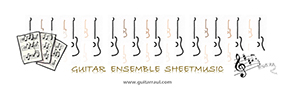Raymond Vincent Migneco
https://idea.library.drexel.edu/is
The guitar is one of the most popular and versatile instruments used in Western music cultures. Dating back to the Renaissance era, the guitar can be heard in nearly every genre of Western music, and is arguably the most widely used instrument in present-day rock music. Over the span of 500 years, the guitar has developed a multitude of performance and compositional styles associated with nearly every musical genre such as classical, jazz, blues and rock. This versatility can be largely attributed to the relatively simplistic nature of the instrument, which can be built from a variety of materials and optionally amplified. Furthermore, the flexibility of the instrument allows performers to develop unique playing styles, which reflect how they articulate the guitar to convey certain musical expressions.Over the last three decades, physical- and physically-inspired models of musical instruments have emerged as a popular methodology for modeling and synthesizing various instruments, including the guitar.
These models are popular since their components relate to the actual mechanisms involved with sound production on a particular instrument, such as the vibration of a guitar string. Since the control parameters are physically relevant, they have a variety of applications including control and manipulation of “virtual instruments.” The focus of much of the literature on physical modeling for guitars is concerned with calibrating the models from recorded tones to ensure that the behavior of real strings is captured. However, far less emphasis is placed on extracting parameters that pertain to the expressive styles of the guitarist.This research presents techniques for the analysis and synthesis of plucked guitar tones that are capable of modeling the expressive intentions applied through the guitarist’s articulation during performance. A joint source-filter estimation approach is developed to account for the performer’s articulation and the corresponding resonant string response. A data-driven, statistical approach for modeling the source signals is also presented in order to capture the nuances of particular playing styles. This research has several pertinent applications, including the development of expressive synthesizers for new musical interfaces and the characterization of performance through audio analysis.





